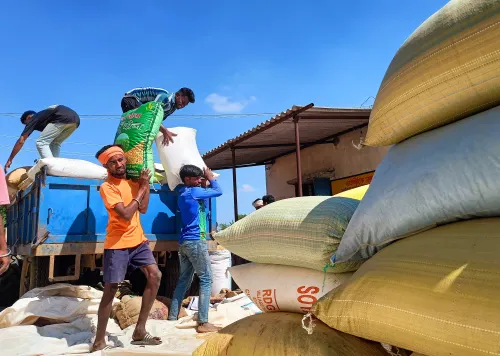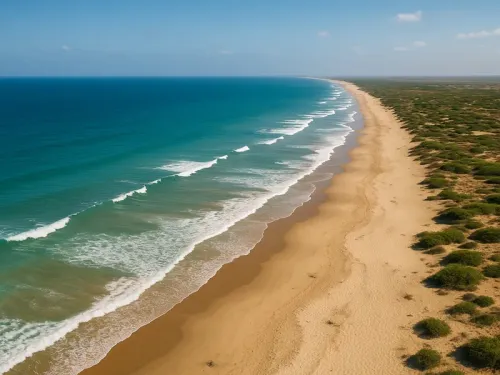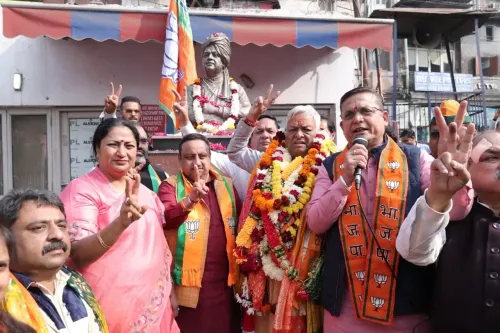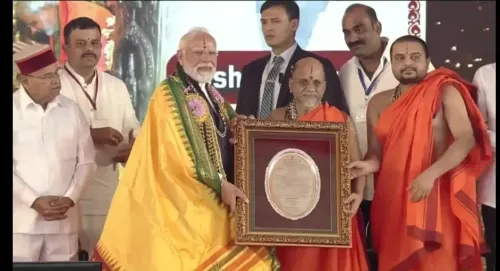Will Suriname Ghat in Kolkata Receive a New Look?
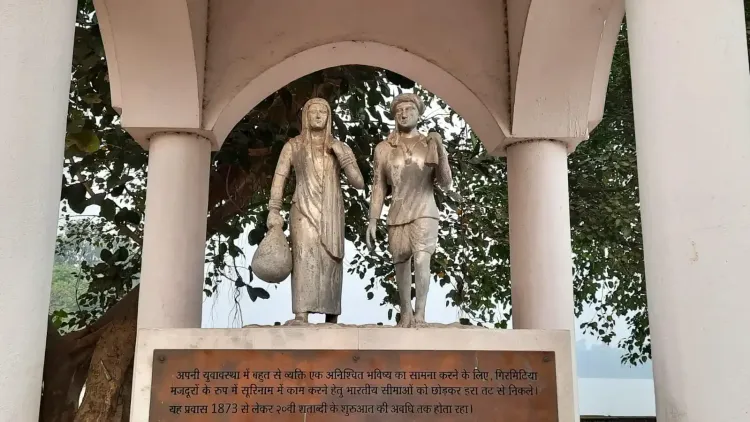
Synopsis
Key Takeaways
- Suriname Ghat is key to the history of the Indian diaspora.
- Over 34,304 Indians migrated to Suriname as indentured labourers.
- GRSE is involved in the beautification project.
- The ghat symbolizes resilience and struggle.
- It will attract visitors and enhance cultural awareness.
Kolkata, Aug 14 (NationPress) The Suriname Ghat in Kolkata, which served as the departure point for at least 64 ships carrying indentured labourers from India to the former Dutch colony of Suriname, is set to undergo a significant transformation. This initiative is made possible through a collaboration between the Syama Prasad Mookerjee Port, Kolkata (SMPK) and Garden Reach Shipbuilders and Engineers (GRSE) Ltd.
Situated on the eastern bank of the River Hooghly at Garden Reach, the Suriname Ghat was the launch site of the sailing ship Lalla Rookh, which departed for Suriname on February 26, 1873, carrying 410 individuals.
These individuals were indentured labourers along with their families, establishing the foundations of the Indian diaspora in what is now the Republic of Suriname.
In total, around 34,304 Indians made their way to Suriname aboard 63 additional ships that departed from the Suriname Ghat until 1916.
Currently, there are over 165,000 individuals of Indian descent in Suriname, representing more than 27% of the nation’s total population. Furthermore, approximately 200,000 descendants of these labourers migrated to the Netherlands when Suriname gained independence in 1975.
The Suriname Ghat symbolizes not only the struggles faced by individuals seeking better lives but also their triumph over adversity.
Despite being promised improved conditions on Caribbean sugarcane plantations, these labourers, primarily from Bihar and Uttar Pradesh, endured harsh treatment and severe challenges.
They were compensated a mere 25 pence weekly, often delayed. While some returned home after their five-year contracts, the majority remained and became the ancestors of today’s Indian diaspora.
The Suriname Ghat features a Mai Baap Memorial, a replica of a sculpture located in Paramaribo, Suriname, representing a man and woman carrying ‘potlis’ or bundles.
Upon leaving India, men were permitted to carry two dhotis and two kurtas, while women took two saris. Some brought religious texts like the Ramayana and Mahabharata along with them.
Today, their descendants have excelled in various fields including business, arts, sports, and public service. GRSE has a history of contributing to the Caribbean, including its recent delivery of the Ma Lisha, a passenger-cargo ferry to the Cooperative Republic of Guyana, which shares a border with Suriname.
This ferry, the first of its kind built in India for Guyana, stands as the largest and fastest in the nation. Indentured labourers also traveled from Kolkata to Guyana for work in sugarcane plantations.
The revitalization of the Suriname Ghat is expected to draw more visitors, providing insight into a significant chapter of India’s extensive history.
As part of its agreement with SMPK, GRSE will also develop another landmark in Kolkata: the Mayer Ghat near Bagbazar in north Kolkata.
This ghat was frequently visited by Ma Sarada, the wife of Shri Ramakrishna Paramahamsa, during her time at the Udbodhan residence in Bagbazar.

